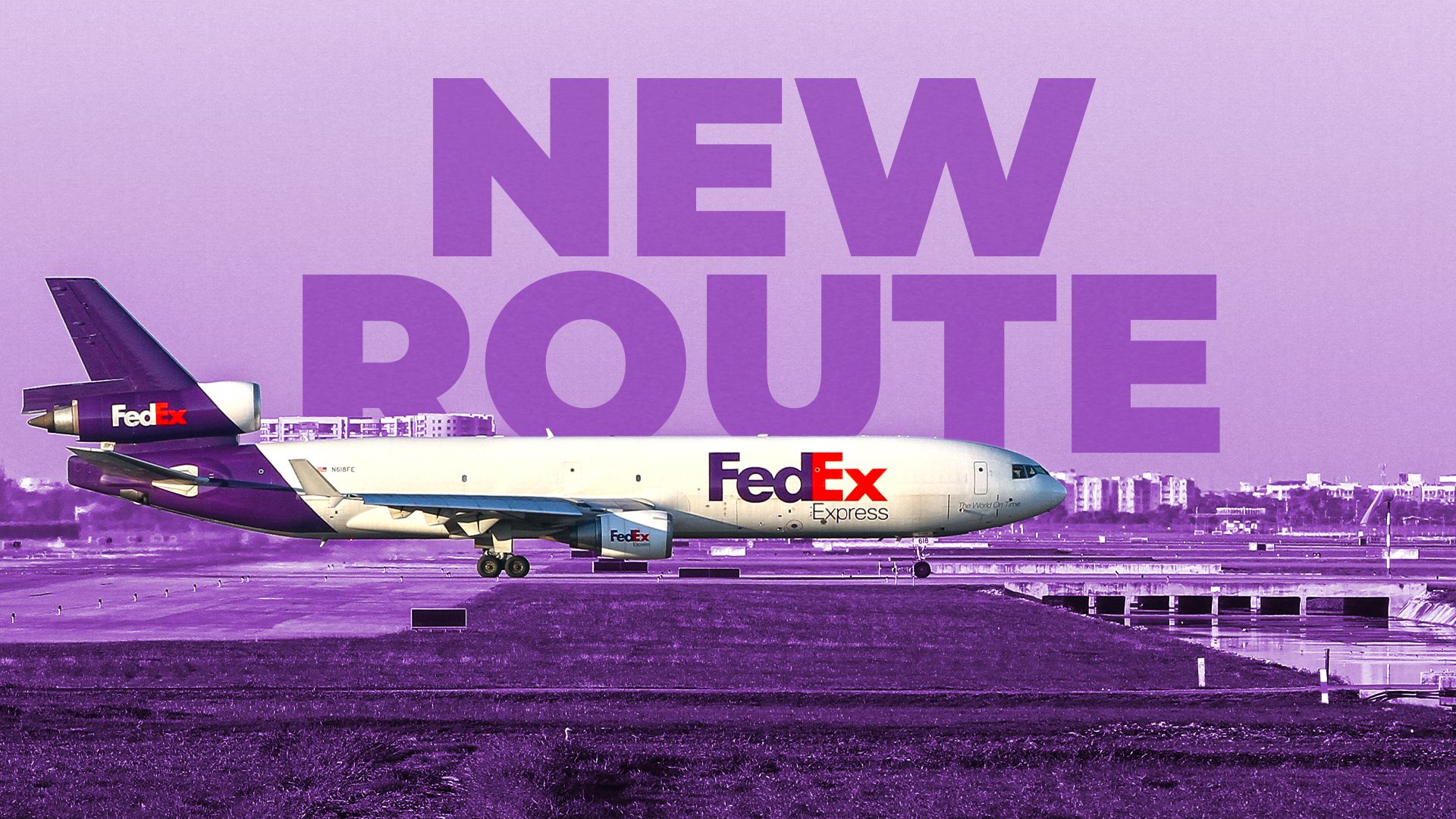World
FedEx Launches New Nonstop Service from Indianapolis to Dublin

FedEx Express has announced the launch of a new nonstop cargo service between **Indianapolis International Airport** and **Dublin Airport**, effective September 18, 2025. This route is notable as it marks the first direct connection from Indianapolis to Dublin, a city not traditionally served by FedEx’s extensive network of European hubs. The service will utilize the **Boeing 767-300F** aircraft and will operate four times a week, aiming to enhance shipping efficiency for businesses in both regions.
The decision to introduce this route comes as FedEx Express seeks to optimize its global network in response to evolving market demands. While Dublin is a significant urban center, it does not host a major FedEx sorting hub, raising questions about the strategic rationale behind this new service. Typically, FedEx routes to European destinations originate from its Superhub in **Memphis** or its primary European hubs located in **Cologne**, **Liege**, **London-Stansted**, and **Paris-Charles de Gaulle**.
Strategic Context for the New Route
FedEx Express operates as the air division of **FedEx Corporation**, distinguishing itself from competitors like **UPS** and **DHL**. The company’s air operations have positioned it as the world’s largest cargo airline, with a fleet of over **350 mainline aircraft** and numerous regional hubs across the globe. Indianapolis is classified as a national hub, essential for connecting shipments across the United States and to FedEx’s international destinations.
The Indianapolis to Dublin route is particularly intriguing, given the existing demand for both passenger and cargo services. Dublin serves as a critical hub for the biopharma and pharmaceutical industries, which align well with Indiana’s substantial medical equipment manufacturing sector. By launching this route, FedEx aims to cut shipping times by as much as one day, enhancing its service offering and potentially attracting new clients.
Challenges and Future Outlook
FedEx Express is currently navigating a tumultuous landscape marked by increased competition and rising operational costs. Following a period of profitability during the COVID-19 pandemic, the company has faced challenges, including the loss of its contract with the **United States Postal Service (USPS)**, which expired in late 2024. Analysts suggest that this loss prompted FedEx to reassess its operational strategies and explore new opportunities, such as the Indianapolis to Dublin route.
The company is undergoing significant restructuring, closing smaller sorting facilities and laying off employees to streamline operations. As FedEx pivots towards a more cost-effective model, it is essential to balance these changes with employee morale, which has reportedly been affected by job cuts and ongoing contract negotiations.
The **Air Line Pilots Association (ALPA)** has been vocal about labor issues, urging FedEx to address workforce concerns as it implements structural changes. Maintaining a motivated workforce is critical for sustaining operational efficiency, especially as FedEx contends with competitors like **Amazon Air**, which is quickly expanding its cargo capabilities.
The successful launch of the new Indianapolis to Dublin route could provide a blueprint for FedEx’s future expansion efforts. Should this service prove profitable, it may lead to similar initiatives that capitalize on the company’s fleet and network capabilities, allowing FedEx to adapt to changing market dynamics while meeting customer demands effectively.
-

 World3 months ago
World3 months agoScientists Unearth Ancient Antarctic Ice to Unlock Climate Secrets
-

 Entertainment3 months ago
Entertainment3 months agoTrump and McCormick to Announce $70 Billion Energy Investments
-

 Science3 months ago
Science3 months agoFour Astronauts Return to Earth After International Space Station Mission
-

 Lifestyle3 months ago
Lifestyle3 months agoTransLink Launches Food Truck Program to Boost Revenue in Vancouver
-

 Technology2 months ago
Technology2 months agoApple Notes Enhances Functionality with Markdown Support in macOS 26
-

 Top Stories1 week ago
Top Stories1 week agoUrgent Update: Fatal Crash on Highway 99 Claims Life of Pitt Meadows Man
-

 Sports3 months ago
Sports3 months agoSearch Underway for Missing Hunter Amid Hokkaido Bear Emergency
-

 Politics2 months ago
Politics2 months agoUkrainian Tennis Star Elina Svitolina Faces Death Threats Online
-

 Technology3 months ago
Technology3 months agoFrosthaven Launches Early Access on July 31, 2025
-

 Politics3 months ago
Politics3 months agoCarney Engages First Nations Leaders at Development Law Summit
-

 Entertainment3 months ago
Entertainment3 months agoCalgary Theatre Troupe Revives Magic at Winnipeg Fringe Festival
-

 Politics1 week ago
Politics1 week agoShutdown Reflects Democratic Struggles Amid Economic Concerns















